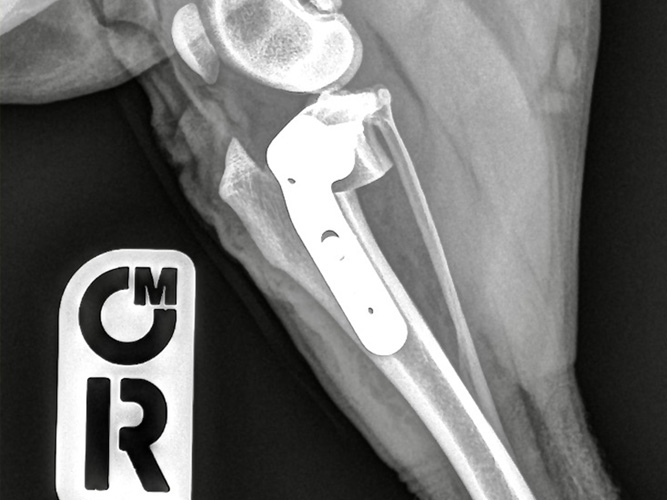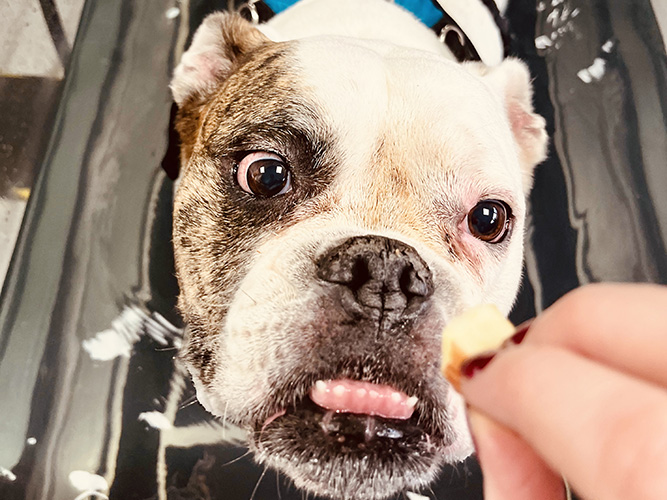Caring for a dog with a chronic illnessShare on
It’s no secret that caring for a chronically ill dog is not easy, and requires a lot of time, effort and patience. While it’s not uncommon for your dog to develop longstanding or chronic conditions during the course of their lives, for many pet owners, seeing a pet in distress can be very difficult to deal with.
For many pets and owners, chronic disease can have a huge impact on the quality of life. However, while chronic illnesses can’t be cured, there are plenty of things you can do to ensure your dog receives the right treatment. Read on for our top tips.
How do I know if my dog is chronically ill?
Unlike in humans, our dogs cannot tell us when they’re feeling ill, dizzy or sick, and so pet owners need to be aware of any behavioural or physical changes, as these are often the first indicator of chronic disease. A chronic condition simply means one that meaning your pet will require extra care and attention.
What are some common chronic conditions?
Normally, as your dog ages, chronic conditions such as heart disease or diabetes may present themselves, however, younger dogs can also develop longterm conditions such as epilepsy.
- Hypothyroidism
- Diabetes
- Kidney disease
- Arthritis
- Skin allergies
- Diabetes
- Cushing’s disease
- Inflammatory Bowel Disease
- Epilepsy
Get yourself organised
From keeping on track of their prescriptions and medications to knowing what to do if something goes wrong, managing chronic illness in dogs is all about preparation.
1) Managing and administering medication
Managing chronic illness in dogs often requires a range of prescribed medications. However, actually encouraging your dog to take these can be difficult. The best, and easiest, way to give a dog a tablet is to hide it in strong food such as cheese or canned meat, you should always check with your veterinarian first in case medication is to be given on an empty stomach.
For medications that must be given orally, follow these simply steps:
- Hold your dogs’ head from above and tilt back to point at the ceiling.
- Using your fingers, fold the upper lip over the teeth to expose the mouth.
- Holding the tablet between your index finger and thumb, gently push down on the lower jaw and op the pill as far back on the tongue as you can reach being careful to keep hold of the upper jaw.
- Finally, hold the mouth closed and stroke the neck or throat to encourage your dog to swallow.
It is important to note that certain medications may cause negative side effects, for example, a dog on steroids will usually have an increased appetite and thirst, and caregivers need to take this into account when planning care.
2) Be adaptable
If your dog is suffering from a chronic illness, their mobility may be greatly reduced. In these instances, owners should look to adapt their homes to make sure their pet can live as normally as possible. For example, ensuring they have plenty of water in their most frequented rooms in the house can help with dehydration, while the use of dog ramps and stairs can also help.
3) Ensure your dog receives the correct nutrition
It’s no secret that a good diet and plenty of water can help your pet to recover and feel better. Many dogs suffering from a longterm condition may encounter problems eating or drinking, but there are a few things owners can try:
- Place water next to your pet, so they have access to a drink even if they can’t move very far.
- Don’t leave uneaten food lying around – if they’re not interested, try again with something else later.
- If your dog continues to refuse their normal meals, you can try feeding them human food such as chicken or scrambled eggs to give them some sustenance.
It is worth noting that many medications cannot be given on an empty stomach, but skipping medications can be detrimental to your dogs’ health. If you’re having issues with getting your dog to eat, please contact a veterinary professional as soon as you can.
4) Create a calm and peaceful environment
Much like humans, unwell animals need plenty of rest in order to feel better. For many unwell dogs, creating a quiet and comfortable space for them to relax in can go a huge way towards helping them to feel more comfortable and settled. If you can, try setting up a bed in a quiet corner of the house to help them heal. Additionally, a dog suffering from a chronic illness is likely to feel more anxious and stressed, and so it’s a good idea to keep your pet away from other sick animals or house visitors until they’re feeling better.
5) Lend a hand with grooming and cleaning
If your dog is unwell, they most likely will not have enough energy to properly clean and look after themselves, and so ensuring your pet stays clean will go a long way to helping them feel better. You can give your dog a shower or bath, but the best way to clean them on a daily basis is to wipe a warm damp washcloth over their mouth, ears and eyes.
Similarly, a chronic illness may mean that your dog cannot take itself off to the bathroom, which might result in a few accidents. To keep your dog clean and dry, you should change their bedding daily, and use a damp cloth to wipe them after any bowel movements. Puppy pads are also a great idea if your pet is too weak to move very far. It is important to remember, however, that your pet knows they’re not in trouble if they do have an accident inside the house. As this can cause them to become stressed or agitated, which can delay recovery.
While chronic disease management is no easy task, there’s no reason why, with the proper attention, care and treatment, your dog cannot have a great quality of life. If you are a referring veterinarian looking for advice on managing chronic illnesses, we make it simple to start a referral case. For pet owners looking for more information, click here.
-
Next




